With ‘citizen journalism’ being one of the loudest buzzwords in the bright shiny Web 2.0 world, it’s no surprise to see the big media agencies looking for a slice of the action.
 Major news agencies made great use of public camera phone footage after the London 7/7 bombings, with several images making the front page of newspapers.
Major news agencies made great use of public camera phone footage after the London 7/7 bombings, with several images making the front page of newspapers.
The citizen journalism photo agency Scoopt currently offers a service that lets users text or email any newsworthy photos and video footage, which the company then endeavours to flog on to the international press on their behalf .
Acquiring the company for an undisclosed sum, Getty Images is looking to fully integrate this service into the output of their pro photographers.
The small print
Camera phone snappers uploading imagery to Scoopt keep their copyright but agree to grant the agency a 12-month exclusive license that lets them re-license the work to one or more publishers, with a 50/50 split on the moolah.
 With Getty’s well established media network, amateur snappers should expect increased prospects of shifting their work, although Getty hasn’t commented if the payment share is to remain the same.
With Getty’s well established media network, amateur snappers should expect increased prospects of shifting their work, although Getty hasn’t commented if the payment share is to remain the same.
The company has also said that it intends to invest in technology upgrades and introduce further enhancements to make the Scoopt site more accessible to punters.
“New technology has made it easier to capture and distribute imagery, leading to citizen photojournalism that is increasingly relevant to the news cycle,” commented Jonathan Klein, co-founder and CEO of Getty Images.
“While this genre will never replace the award-winning photojournalism for which we’re known, it’s a highly complementary offering that enables us to meet the evolving imagery needs of a broad customer base,” he added.
How to take good camera phone pictures
Scoopt’s site also provides a handy photo taking guide for wannabe citizen journos, and here’s their top ten tips:
1 Hold the camera steady.
2 Concentrate on the subject.
3 Be aware of what is happening around you.
4 Try to connect with your subject but stay slightly detached to look for the best time to take a picture.
5 Go the extra mile to get the picture — but don’t take risks and don’t break the law.
6 Keep looking and snapping even when you think you have the scoop.
7 Don’t be put off by bad light/rain/snow/a duff viewpoint. Sometimes these elements can add to a picture.
8 Be VERY patient.
9 Be single minded. Getting the picture is your objective. Think in terms of images
10 Hold the camera steady! (Did we mention that one already?)
 Until then, Miglia has been bundling Elgato’s TVEye software with their digital TV DVB-T/Freeview/TNT tuners.
Until then, Miglia has been bundling Elgato’s TVEye software with their digital TV DVB-T/Freeview/TNT tuners. BT is under a legal obligation to provide phone boxes up and down the length of the UK, which they claim numbers 63,795. BT say that 40,500 of these phone boxes are unprofitable.
BT is under a legal obligation to provide phone boxes up and down the length of the UK, which they claim numbers 63,795. BT say that 40,500 of these phone boxes are unprofitable.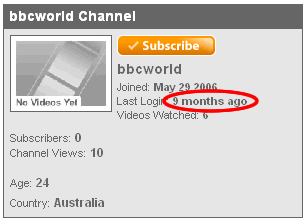 When an important deal like
When an important deal like 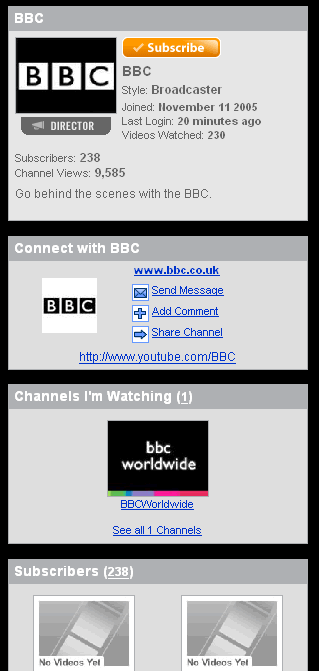 Two deals have been done, one with the BBC, the other BBC Worldwide, the commercial arm of the BBC. Financial terms of the deal aren’t being discussed at all.
Two deals have been done, one with the BBC, the other BBC Worldwide, the commercial arm of the BBC. Financial terms of the deal aren’t being discussed at all. Research house iSupply are predicting that IPTV will be boosting the reveneue generated by the premium video services market from its current level of less than $200Bn to a whopping $277Bn by 2010.
Research house iSupply are predicting that IPTV will be boosting the reveneue generated by the premium video services market from its current level of less than $200Bn to a whopping $277Bn by 2010. That aside, iSupply see the battle royal between two big, hairy beasts – the current pay-TV world of direct-to-home satellite and digital and analogue cable TV services – and the telcos who will be pushing quad-play.
That aside, iSupply see the battle royal between two big, hairy beasts – the current pay-TV world of direct-to-home satellite and digital and analogue cable TV services – and the telcos who will be pushing quad-play.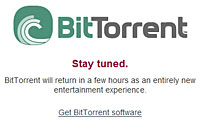 Once the biggest, baddest, mean mo’fo name in the world of web piracy, BitTorrent is going legit today with the launch of a digital store backed by a string of big name content partners.
Once the biggest, baddest, mean mo’fo name in the world of web piracy, BitTorrent is going legit today with the launch of a digital store backed by a string of big name content partners.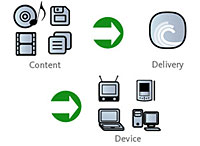
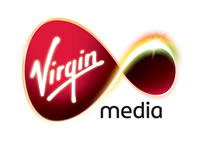 The frost started back in November last year when Virgin’s Richard Branson complained about Sky buying a £940m holding in the UK broadcaster, ITV. Branson jumped up and down and generally said how unfair it was.
The frost started back in November last year when Virgin’s Richard Branson complained about Sky buying a £940m holding in the UK broadcaster, ITV. Branson jumped up and down and generally said how unfair it was. Joost is currently in beta, and it’s understood that the Viacom material will be available for the yet-undefined launch date of Joost. The financial terms of the deal were not disclosed.
Joost is currently in beta, and it’s understood that the Viacom material will be available for the yet-undefined launch date of Joost. The financial terms of the deal were not disclosed. Joost recently introduced a version of Joost to run on Apple’s Mac. Version 0.8.0.1 for Mac came out on Monday, following a brief period in Alpha test. They describe it as looking “very much like Joost for Windows, while behaving very much like a Mac application.” A growing number of Mac Beta testers are complaining that the software only works on Intel-based Macs.
Joost recently introduced a version of Joost to run on Apple’s Mac. Version 0.8.0.1 for Mac came out on Monday, following a brief period in Alpha test. They describe it as looking “very much like Joost for Windows, while behaving very much like a Mac application.” A growing number of Mac Beta testers are complaining that the software only works on Intel-based Macs.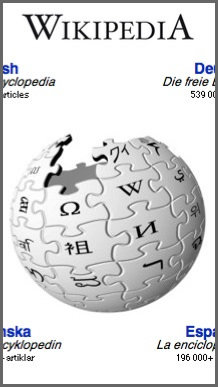 Whilst there have been sensationalist reports that Wikipedia would be forced to close in three to four months if the current financial situation continued, this has shown not to be the case by
Whilst there have been sensationalist reports that Wikipedia would be forced to close in three to four months if the current financial situation continued, this has shown not to be the case by